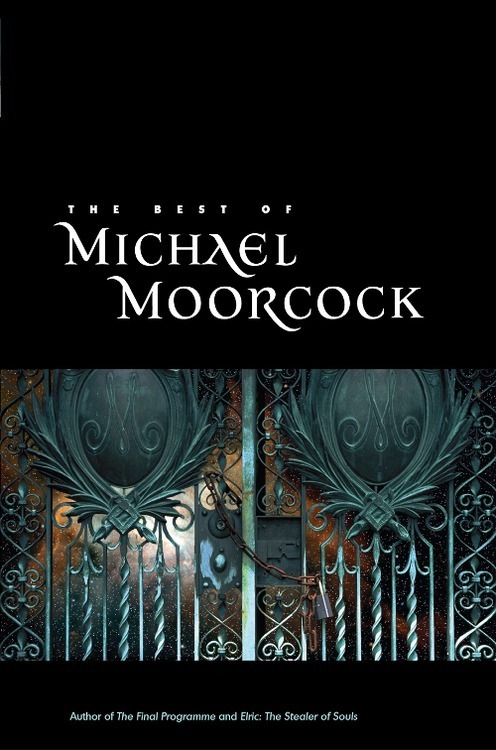Michael Moorcock’s literary agitation shook the fantasy and science-fiction establishment

In The New Yorker, Peter Bebergal delivers a profile of “the anti-Tolkien” Michael Moorcock.
Moorcock’s influence is nothing like Tolkien’s, at least on the surface, but his vision of a speculative-fiction genre that can be psychologically complex is evident in how very sophisticated some of it has become—from “True Detective” to Jeff VanderMeer, from David Mitchell to “Under the Skin.” But Moorcock also embraces the joy of pulp, and, like Tolkien, his creations are namedropped and sourced high and low.
Rock and roll has proved to be one of the more potent vehicles for enshrining both Tolkien and Moorcock’s characters in pop culture. For all the claims of devil worship lobbed at Led Zeppelin, Satan makes only one appearance in their lyrics.* Tolkien is where their real allegiance lies, with references to Gollum, Mordor, the Misty Mountains, and Ringwraiths. Moorcock, however, came of age during rock’s ascension and understood rock’s power to give electrified life to his creations. Moorcock worked directly with bands like Hawkwind and Blue Öyster Cult as both a spiritual and literary guru. And, like Tolkien’s characters, Moorcock’s heroes and anti-heroes appear in comic books and role-playing games. But more often his presence is seen the form of loving nods as, when, in the “Game of Thrones” television series, someone yells out “Stormbringer” when King Joffrey asks for possible names for his sword.
Moorcock’s literary agitation shook the fantasy and science-fiction establishment and made it possible for writers to step outside the long shadow of Tolkien and other fantasy devices. And frail Elric, dependent on a soul-stealing sword to keep his kingdom from utter dissolution, is a necessary corrective to the bloat of something like the “Hobbit” movie trilogy. Elric is not high art by any means, but is as rich and complex as anything calling itself fantasy. And the Elric stories are terrific fun. But, more importantly, Elric is not about abstract ideas of good and evil, with faceless powers looking to strip the world of its trees and its hobbit holes. Elric is about law and chaos, and how, sometimes, choosing one over the other is no more or less just.
Read the rest of Bebergal’s Michael Moorcock profile at The New Yorker.
For a survey of Moorcock’s literary legacy, check out Tachyon’s The Very Best of Michael Moorcock.
Cover by Ann Monn
